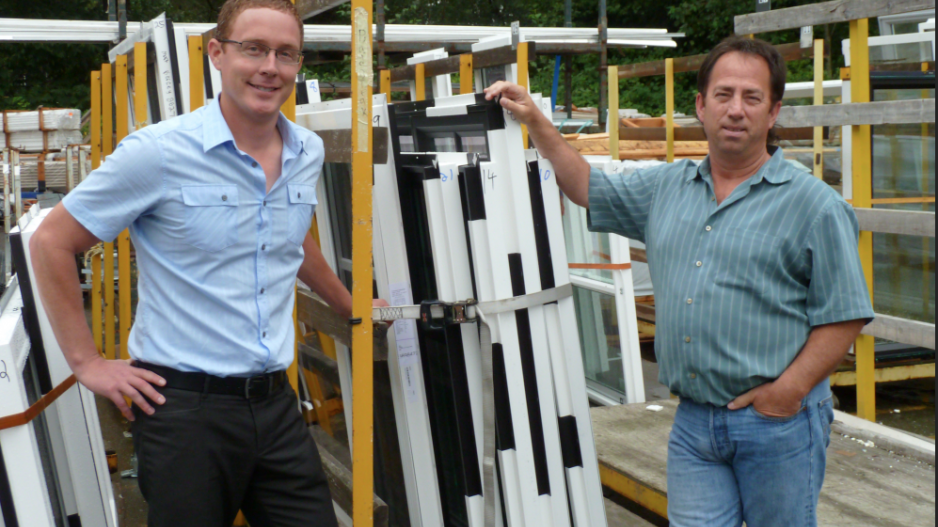Small local businesses that manufacture windows could be forced out of business by a new Vancouver building code for houses considered the most stringent in North America.
The new bylaw is also expected to increase construction prices in a city already ranked as having the world’s second least affordable housing.
“I simply can’t afford the testing costs,” said Peter Fenger, principal of Peter Fenger Builders Ltd., which has been crafting custom-made wood-frame windows from his two-person south Vancouver shop for more than 40 years.
Fenger and all other residential window makers are required to have all their windows tested to ensure they conform to higher energy standards in the new Vancouver building bylaw, which comes into effect January 1, 2015, after a 10-month delay.
A basic window energy measurement is the U-value, which measures the heat escaping through a window. The lower the U-value, the better a window is at keeping heat inside the building.
Under climate zones outlined by Natural Resources Canada’s Energy Star program for windows, Vancouver falls under the most temperate Zone A. However, the new City of Vancouver building bylaw requires that windows meet the standards of Zone C, the same level as in northern B.C. towns such as Dawson Creek.
The city’s bylaw consequently requires windows to have a U-value of 1.4. This compares with a U-value of 2.0 under the current city standards for Part 9 buildings, which covers one- and two-family homes and residential buildings of three storeys or fewer.
The lower rating may have a minuscule effect on overall energy performance, but it means big changes in Vancouver’s window industry, which is characterized by double panes of glass.
A study done of all windows in the Energy Star Canada database byVancouver-based RDH BuildingEngineering showed that fewer than 1% of double-pane windows met a U-value of 1.4.
Fenger estimates that it would cost $40,000 to test his current line of windows to the new standard, but because his windows are mostly one-off custom creations, each window he produces would also have to be tested.
It costs approximately $1,600 to test a window to the new standards at either of the two test laboratories in Metro Vancouver.
“The city has told me that no grandfathering is allowed,” Fenger said.
Will Johnston, Vancouver’s chief building official and director of the licensing and inspections department, said the new bylaw will be in effect for all new residential construction and for “substantial renovation” permits taken out after January 1.
If windows are being replaced, they also have to conform to the new building bylaw, he confirmed. Vancouver’s heritage-designated houses are exempt from the standard.
Larger window manufacturers are also scrambling to meet the new bylaw requirements, said Terry Adamson, past chairman of the Langley-based Fenestration Association of BC, which represents window and door manufacturers and consulted with Vancouver and provincial code officials on the new energy requirements.
Adamson is also technical director of Chilliwack’s Westeck Windows and Doors, which he said has thus far spent $300,000 testing its extensive line of products to meet both the new B.C. building code, which came into effect last December, and the new Vancouver bylaw.
Kevin Saito, fenestration-testing manager for Quality Auditing Institute in Coquitlam, said the lower U-value rating would mean a push toward triple-glazed windows in Vancouver.
“If [most] window manufacturers don’t look at doing some additional glass options or changing their profiles, they won’t be able to reach the 1.4 U-value and won’t be able to sell windows within Vancouver. Triple-glazing is the most efficient way of getting down to that level.”
Fenger said triple-glazing is more expensive than conventional window design and would increase costs for buyers of new houses and those doing renovations.
“All of these costs will be passed on to the consumer.”
The new city bylaw also requires that new homes be adaptable for disabled people. For the door industry, this means that doorknobs will be outlawed and all doors must be wider to accommodate wheelchairs.
The bylaw was originally to come into effect on March 1 of this year but was extended to July 1 and then to January 1, 2015, to allow the
industry time to prepare.
“There are no plans to extend the effective date of [the Vancouver building bylaw] beyond January 1, 2015,” a city spokeswoman wrote in an email to Business in Vancouver.




